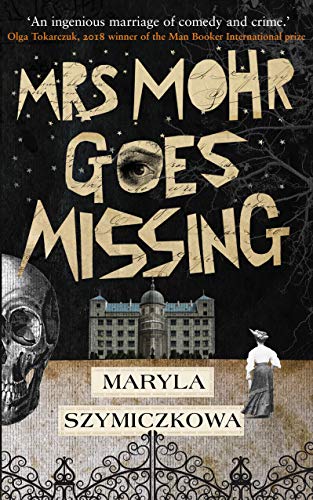Mrs Mohr Goes Missing
Cracow, 1893: Zofia Turbotyńska, aged 40 and childless, strives to advance herself in local society. She is married to a medical professor, Ignacy, who has achieved relative eminence largely down to her own efforts to advance his career. Even though Zofia’s origins were humble and even more provincial than Cracow, she is fiercely ambitious to climb the slippery pole of Cracovian society. She is keen to develop her profile amongst the higher echelons of society by good works at a newly-opened privately-funded charitable residential home in the city. When one of their elderly residents, the eponymous widowed Mrs Mohr, disappears, Zofia takes the opportunity to act the detective and investigate her absence. She quickly develops a taste for her self-appointed detective role, giving a sense of meaning and direction to her otherwise rather trivial bourgeois life, especially when matters take a much more serious turn and there are misdemeanours and crimes to look into, in conjunction now with the official police force.
The tone of the book reminds me very much of the society fiction of E.F. Benson, with its wry and camp humour – Zofia is very like one of his social climbing hostesses and is a crashing snob. The topography and milieu of late 19th-century Cracow are depicted, as is Poland’s overall subordinate position within the ruling Viennese-based Hapsburgs. Towards the latter half of the story, the narrative is occasionally rather difficult to follow as all sorts of new threads and directions in the story open up, but Zofia does successfully bring them all together at the end in a traditional golden-age detection conclusion and unveiling of the culprit. The author, whose name seems to be rather like a fantasy hand of tiles at Scrabble, is a pseudonym of two Polish men.










